Identifiers and Data Types
Every variable has:
- a space in memory
- an identifier = name
- a data type = the type of data that will be stored inside this location
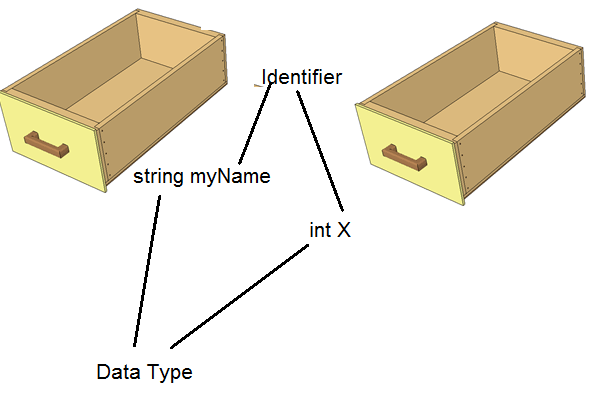
- giving a variable a name and a data type is called a declaration
- a declaration reserves storage for the value you will put into the variable
- Example: int myAge;
Integer Data Type
- You can declare and assign a value to a variable as follows:
- example: int age; age = 30; or int age = 30; and then change it later; age = 35;
Integral data types are as follows:
- Types that store whole numbers
- byte, sbyte, short, ushort, int, uint, long, and ulong
- Variables of type int
- Store (or hold) integers, or whole numbers
- Shorter integer types:
- byte, sbyte (which stands for signed byte), short (short int), or ushort (unsigned short int)
Double Data Type
- Data Type for decimal numbers. For example: double decimalNumber;
decimalNumber = 14.5;
Floating-Point Number
Contains decimal positions and the data types are as follows:
- float: Can hold up to seven significant digits of accuracy
- double: Can hold 15 or 16 significant digits of accuracy
- decimal: Has a greater precision and a smaller range and
suitable for financial and monetary calculations
Char Data Type
Chars can be assigned values as follows:
char letterGrade; letterGrade = 'B' or char letterGrade = 'B'
This can be changed later for example; letterGrade = 'A'
chars are always enclosed in Single Quotes (').
Bool Data Type
bool can be assigned values as follows: bool married; married = true;
Or bool married = true; and then change later for example: married = false;
More details on C# data types are included here:
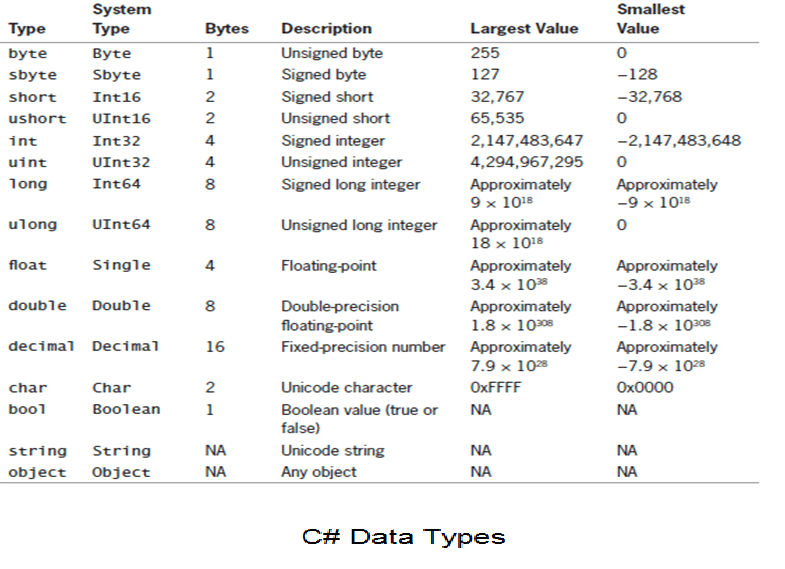
Arithmetic Operators
Operators in C# are shown in this table:
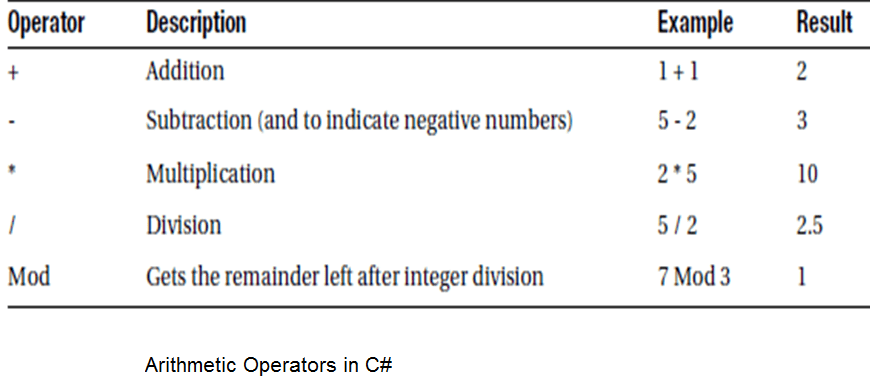
Operator Precedence in C# depends on order in which the operators are evaluated:
- First: exponentiation
- Second: multiplication and division
- Third: addition and subtraction
- parentheses () will change the order
Examples: What is the value of number?
- int number; number = 4 + 2 * 3;
- int number; number = (4 + 2) * 3
Answers:
- number = 10
- number = 18
Type Conversion (Casting)
Casting means changing the variable from one data type to another.
Casting an integer to a double (implicit casting). See example here:

Casting a double to an integer (explicit casting) See example:
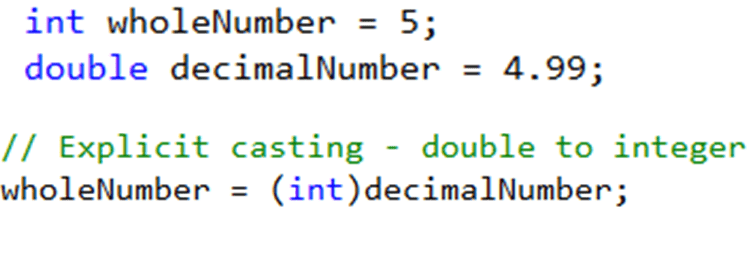
Casting an integer to a string. See example:
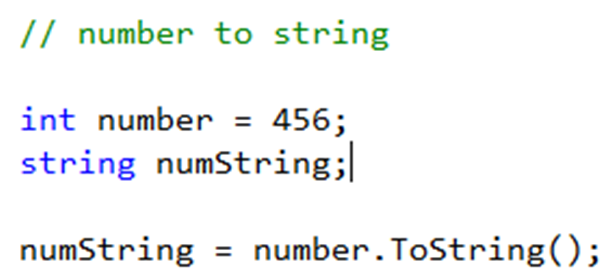
Casting an string to a number (int). See example:
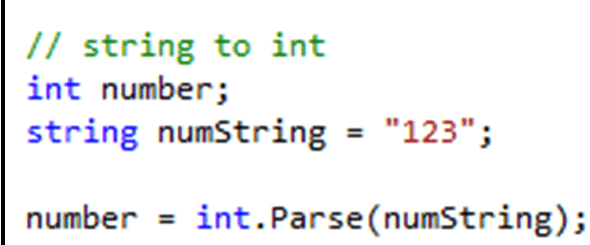
Casting an string to a number (double). See example:
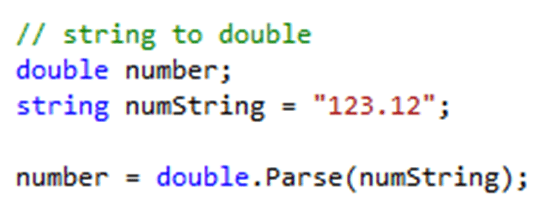
For more details, please contact me here.
Date of last modification: 2021








